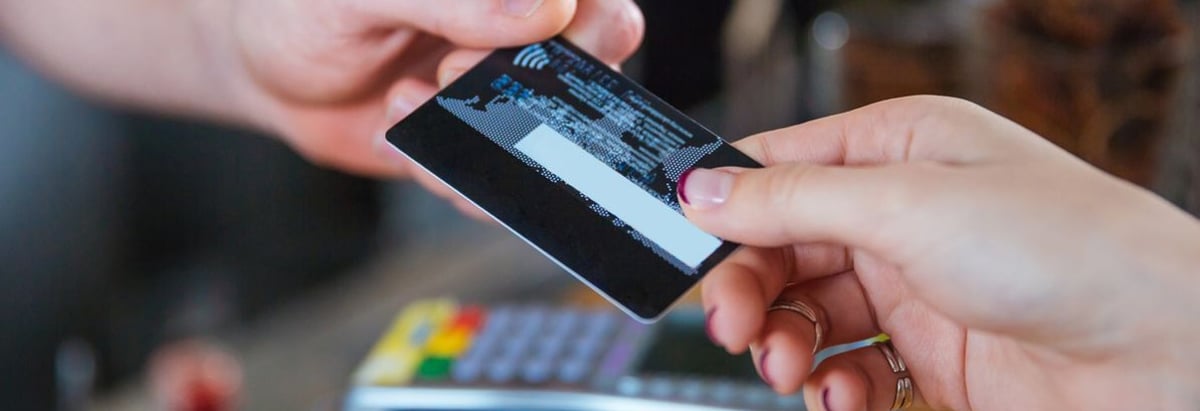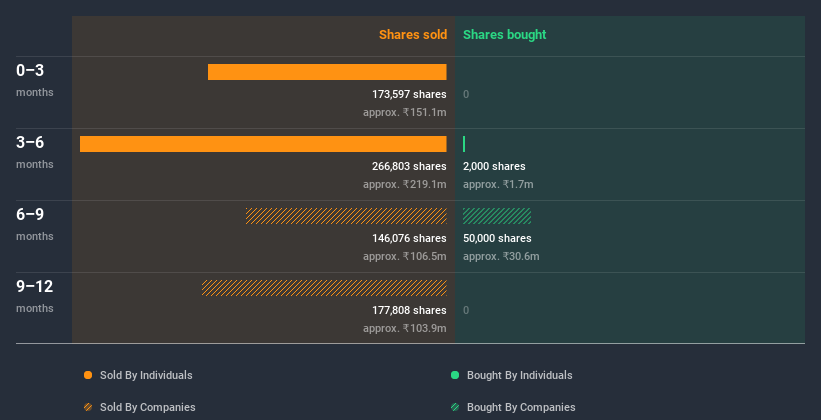- India
- /
- Consumer Finance
- /
- NSEI:SBICARD
Should You Review Recent Insider Transactions At SBI Cards and Payment Services Limited (NSE:SBICARD)?

It is not uncommon to see companies perform well in the years after insiders buy shares. Unfortunately, there are also plenty of examples of share prices declining precipitously after insiders have sold shares. So we'll take a look at whether insiders have been buying or selling shares in SBI Cards and Payment Services Limited (NSE:SBICARD).
What Is Insider Selling?
It's quite normal to see company insiders, such as board members, trading in company stock, from time to time. However, such insiders must disclose their trading activities, and not trade on inside information.
We would never suggest that investors should base their decisions solely on what the directors of a company have been doing. But logic dictates you should pay some attention to whether insiders are buying or selling shares. For example, a Columbia University study found that 'insiders are more likely to engage in open market purchases of their own company’s stock when the firm is about to reveal new agreements with customers and suppliers'.
See our latest analysis for SBI Cards and Payment Services
The Last 12 Months Of Insider Transactions At SBI Cards and Payment Services
Over the last year, we can see that the biggest insider sale was by the Chief Sales Officer & Executive VP, Manish Dewan, for ₹9.8m worth of shares, at about ₹801 per share. That means that even when the share price was below the current price of ₹1,020, an insider wanted to cash in some shares. As a general rule we consider it to be discouraging when insiders are selling below the current price, because it suggests they were happy with a lower valuation. While insider selling is not a positive sign, we can't be sure if it does mean insiders think the shares are fully valued, so it's only a weak sign. This single sale was 100% of Manish Dewan's stake.
Over the last year, we can see that insiders have bought 2.00k shares worth ₹1.7m. On the other hand they divested 440.40k shares, for ₹371m. All up, insiders sold more shares in SBI Cards and Payment Services than they bought, over the last year. The chart below shows insider transactions (by companies and individuals) over the last year. If you click on the chart, you can see all the individual transactions, including the share price, individual, and the date!

If you like to buy stocks that insiders are buying, rather than selling, then you might just love this free list of companies. (Hint: insiders have been buying them).
Insiders at SBI Cards and Payment Services Have Sold Stock Recently
The last quarter saw substantial insider selling of SBI Cards and Payment Services shares. Specifically, insiders ditched ₹151m worth of shares in that time, and we didn't record any purchases whatsoever. In light of this it's hard to argue that all the insiders think that the shares are a bargain.
Does SBI Cards and Payment Services Boast High Insider Ownership?
Looking at the total insider shareholdings in a company can help to inform your view of whether they are well aligned with common shareholders. I reckon it's a good sign if insiders own a significant number of shares in the company. Insiders own 0.7% of SBI Cards and Payment Services shares, worth about ₹6.3b. While this is a strong but not outstanding level of insider ownership, it's enough to indicate some alignment between management and smaller shareholders.
So What Do The SBI Cards and Payment Services Insider Transactions Indicate?
Insiders haven't bought SBI Cards and Payment Services stock in the last three months, but there was some selling. And our longer term analysis of insider transactions didn't bring confidence, either. The company boasts high insider ownership, but we're a little hesitant, given the history of share sales. So these insider transactions can help us build a thesis about the stock, but it's also worthwhile knowing the risks facing this company. Every company has risks, and we've spotted 3 warning signs for SBI Cards and Payment Services (of which 1 can't be ignored!) you should know about.
But note: SBI Cards and Payment Services may not be the best stock to buy. So take a peek at this free list of interesting companies with high ROE and low debt.
For the purposes of this article, insiders are those individuals who report their transactions to the relevant regulatory body. We currently account for open market transactions and private dispositions, but not derivative transactions.
If you’re looking to trade SBI Cards and Payment Services, open an account with the lowest-cost* platform trusted by professionals, Interactive Brokers. Their clients from over 200 countries and territories trade stocks, options, futures, forex, bonds and funds worldwide from a single integrated account. Promoted
If you're looking to trade SBI Cards and Payment Services, open an account with the lowest-cost platform trusted by professionals, Interactive Brokers.
With clients in over 200 countries and territories, and access to 160 markets, IBKR lets you trade stocks, options, futures, forex, bonds and funds from a single integrated account.
Enjoy no hidden fees, no account minimums, and FX conversion rates as low as 0.03%, far better than what most brokers offer.
Sponsored ContentNew: Manage All Your Stock Portfolios in One Place
We've created the ultimate portfolio companion for stock investors, and it's free.
• Connect an unlimited number of Portfolios and see your total in one currency
• Be alerted to new Warning Signs or Risks via email or mobile
• Track the Fair Value of your stocks
This article by Simply Wall St is general in nature. It does not constitute a recommendation to buy or sell any stock, and does not take account of your objectives, or your financial situation. We aim to bring you long-term focused analysis driven by fundamental data. Note that our analysis may not factor in the latest price-sensitive company announcements or qualitative material. Simply Wall St has no position in any stocks mentioned.
*Interactive Brokers Rated Lowest Cost Broker by StockBrokers.com Annual Online Review 2020
Have feedback on this article? Concerned about the content? Get in touch with us directly. Alternatively, email editorial-team (at) simplywallst.com.
About NSEI:SBICARD
SBI Cards and Payment Services
A non-banking financial company, issues credit cards to individual and corporate customers in India.
High growth potential with mediocre balance sheet.


